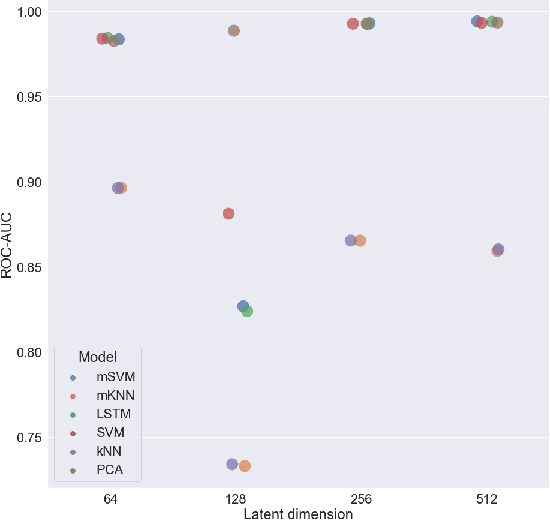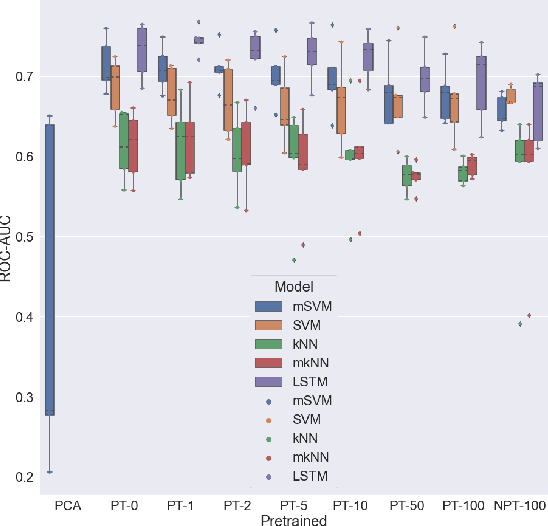Tonya White
Variational voxelwise rs-fMRI representation learning: Evaluation of sex, age, and neuropsychiatric signatures
Aug 29, 2021



Abstract:We propose to apply non-linear representation learning to voxelwise rs-fMRI data. Learning the non-linear representations is done using a variational autoencoder (VAE). The VAE is trained on voxelwise rs-fMRI data and performs non-linear dimensionality reduction that retains meaningful information. The retention of information in the model's representations is evaluated using downstream age regression and sex classification tasks. The results on these tasks are highly encouraging and a linear regressor trained with the representations of our unsupervised model performs almost as well as a supervised neural network, trained specifically for age regression on the same dataset. The model is also evaluated with a schizophrenia diagnosis prediction task, to assess its feasibility as a dimensionality reduction method for neuropsychiatric datasets. These results highlight the potential for pre-training on a larger set of individuals who do not have mental illness, to improve the downstream neuropsychiatric task results. The pre-trained model is fine-tuned for a variable number of epochs on a schizophrenia dataset and we find that fine-tuning for 1 epoch yields the best results. This work therefore not only opens up non-linear dimensionality reduction for voxelwise rs-fMRI data but also shows that pre-training a deep learning model on voxelwise rs-fMRI datasets greatly increases performance even on smaller datasets. It also opens up the ability to look at the distribution of rs-fMRI time series in the latent space of the VAE for heterogeneous neuropsychiatric disorders like schizophrenia in future work. This can be complemented with the generative aspect of the model that allows us to reconstruct points from the model's latent space back into brain space and obtain an improved understanding of the relation that the VAE learns between subjects, timepoints, and a subject's characteristics.
 Add to Chrome
Add to Chrome Add to Firefox
Add to Firefox Add to Edge
Add to Edge